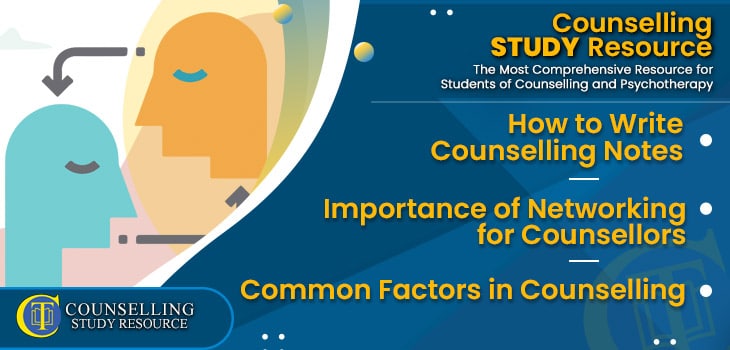See Counselling Skills Used in Real Sessions by Qualified Therapist
Real Sessions – Real Presentations – Real Skills
Gain the competence and confidence to use counselling techniques effectively!

In Episode 219 of the Counselling Tutor Podcast, your hosts Rory Lees-Oakes and Ken Kelly go through this week’s three topics:
Counselling Notes
When it comes to taking notes, everyone is likely to do it differently. However, there are a few important things to think about when it comes to taking and storing a client’s notes:

Real Sessions – Real Presentations – Real Skills
Gain the competence and confidence to use counselling techniques effectively!
When it comes to counselling, having a wide network can be a huge benefit to your practice.
Some reasons for this include:

On-demand access to a rich lecture library covering theory, skills, and professional development for counselling students—Mapped to the UK awarding body criteria
“The Student Library has been BRILLIANT, I can’t recommend it enough!
It has been a lifeline in helping me prepare for practice and my first clients. If you’re considering it, go-for-it, it’s absolutely worth it!”
Kelly – Graduated and now in practice.
In this week’s ‘Practice Matters’, Rory speaks with Professor Mick Cooper on the common factors in counselling.
The key points of this discussion include:
Counselling Notes

Get on-demand Certified CPD that is implementable in your practice
